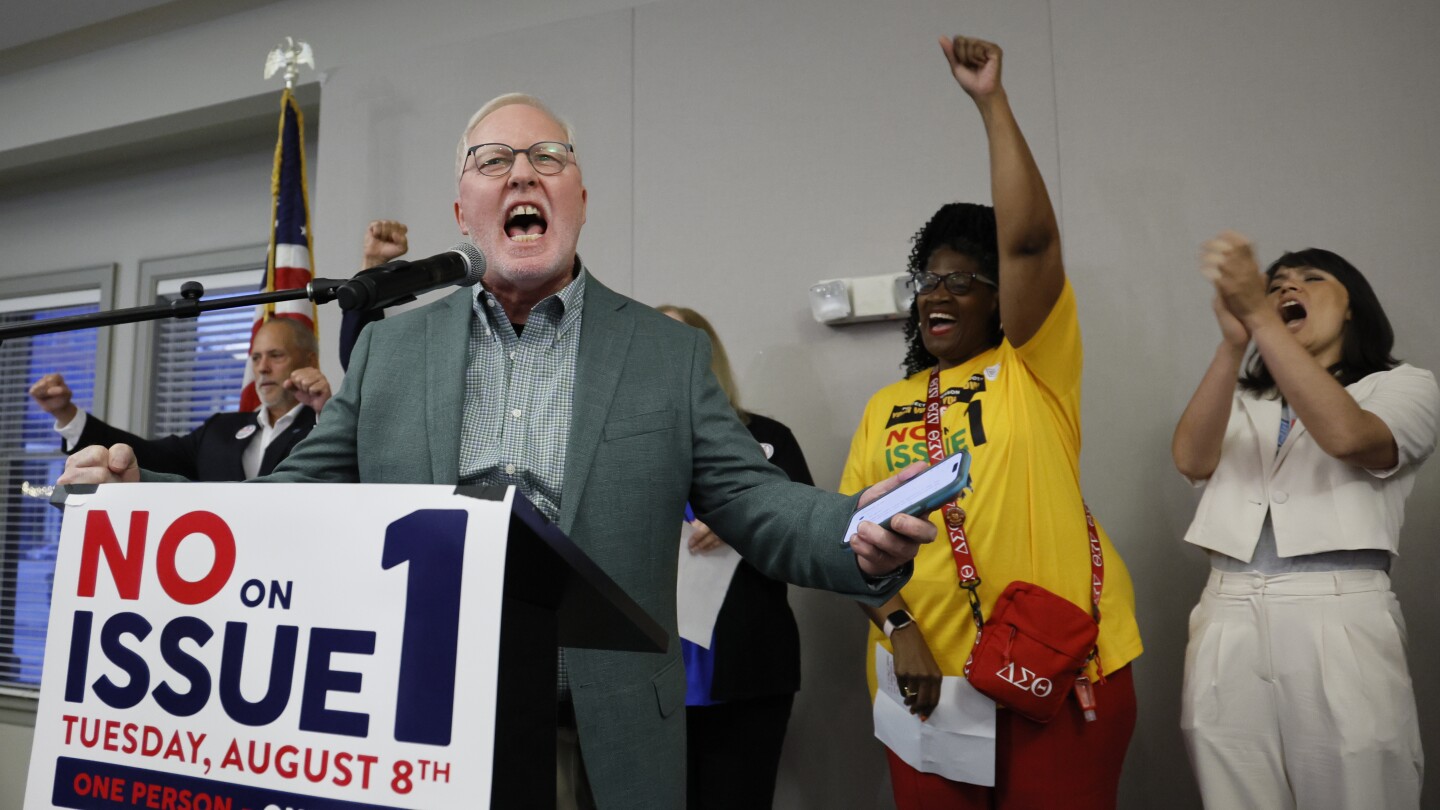Ohio voters on Tuesday resoundingly rejected a Republican-backed measure that would have made it more difficult to change the state’s constitution, setting up a fall campaign that will become the nation’s latest referendum on abortion rights since the U.S. Supreme Court overturned nationwide protections last year.



Because it was pushed through as an august election not long after august elections were banned (due to high cost and low turnout), but almost immediately after legalizing abortion wound up on the November ballot. Sure it’s about more than abortion, but it’s also very much about abortion, otherwise it would’ve waited until November.
Hey! So I had just learned about the historically low turnout of August elections, but what is the high cost about?
Elections themselves are expensive affairs. Not just for the sides, but also for the host government. Worth it of course, but it’s a huge strain including shipping and hosting the ballots, machines, etc to every location. Add in that poll workers are paid. And it uses a ton of space. All for one yes or no question to be asked 3 months before all this was going to happen anyways. Elections happen on their own every year, that’s the default. And there’s usually one in the spring too. It’s one thing if it actually cannot wait, like if we were asking for a referendum on an ecological catastrophe or a Supreme Court shenanigan that opened up a stupid outdated law to happening with serious effect. But this, this absolutely was not worth the cost and could have waited 3 months unless your sole concern is to make abortion or marijuana harder to access in this state even if the majority of Ohioans want them.
Cool, thank you!
The high cost comes from having to mobilize polling locations, poll workers, logistics for voting infrastructure, ya know, all the stuff that goes into making an election happen.
Special elections like this need to have all the same setup as a general election, but since it’s focused around one (or a handful) of issues, AND the general election still has to take place in November, it’s pretty wasteful. I’ve seen the estimates are around $20-30 million to make a special election happen.
Cool, makes perfect sense. Thank you!